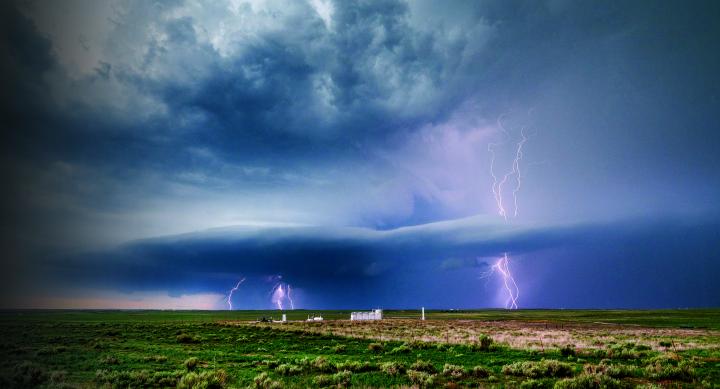
AUSTIN, Texas -- A new Extreme Weather Adaptation Lab will help community leaders across Texas confront the escalating challenges posed by extreme heat, drought, flooding, wildfires, and severe storms, particularly in under-resourced and rural communities. The lab is designed to provide year-round training opportunities, customized research, and user-friendly policy tools to help community leaders make informed decisions to adapt to these hazards. The initiative is hosted by the LBJ School of Public Affairs and draws on resources and expertise across The University of Texas at Austin.
In recent decades, Texas experienced a significant increase in billion-dollar weather disasters. According to the National Oceanic and Atmospheric Administration (NOAA), Texas was impacted by 179 weather-related disasters that exceeded one billion dollars between 1980 and mid-June 2024. These events included 118 severe storm events; 19 drought events; 14 tropical cyclone events; 11 winter storms; 1 freeze; 9 flooding events; and 7 wildfire events. The escalating frequency and complexity of weather events are straining resources making it essential to take a proactive approach.
“Extreme weather can cost thousands of lives annually, diminish quality of life, and inflict billions in economic damages,” said JR DeShazo, dean of the LBJ School. "Increasing the resilience of communities through public policy reforms, improved infrastructure management and strategic investments can significantly reduce these human and financial costs.”
The launch of the Extreme Weather Adaptation Lab expands upon the LBJ School’s world-class academic offerings and executive education portfolio to introduce professional training workshops and skills development tailored for local and regional governments, non-profits and faith leaders, and utilities and small businesses. Participants will develop resilience blueprints tailored to their communities’ unique needs. Participants will get access to:
Adaptation Academy: Gain expertise in managing specific weather hazards through hands-on training and collaborative workshops.
Applied Research: Scholars and local experts working together on evidence-based solutions that directly enhance community-level adaptability and resilience.
Resource Navigator: Tools, events, and networking activities that connect local leaders to state and national resources for technical assistance and financial support options.
Policy Implementation Hub: Online platform for policymakers to stay informed with the latest information, track funding opportunities, and build valuable peer connections.
The University of Texas is home to several dynamic schools, research centers and experts dedicated to building resilient communities. The Lab will build on the work already underway and develop strategic research partnerships with faculty in the Dell Medical School, Jackson School of Geosciences, the Cockrell School of Engineering, the School of Architecture, the College of Liberal Arts, the Steve Hicks School of Social Work, and the Moody College of Communication.
To learn more about the Lab or its offerings, visit lbj.utexas.edu/ewal or contact us at lbjextremeweather@austin.utexas.edu.
###
Media contact: Victoria Yu, Chief Marketing & Communications Officer - victoriajyu@austin.utexas.edu

